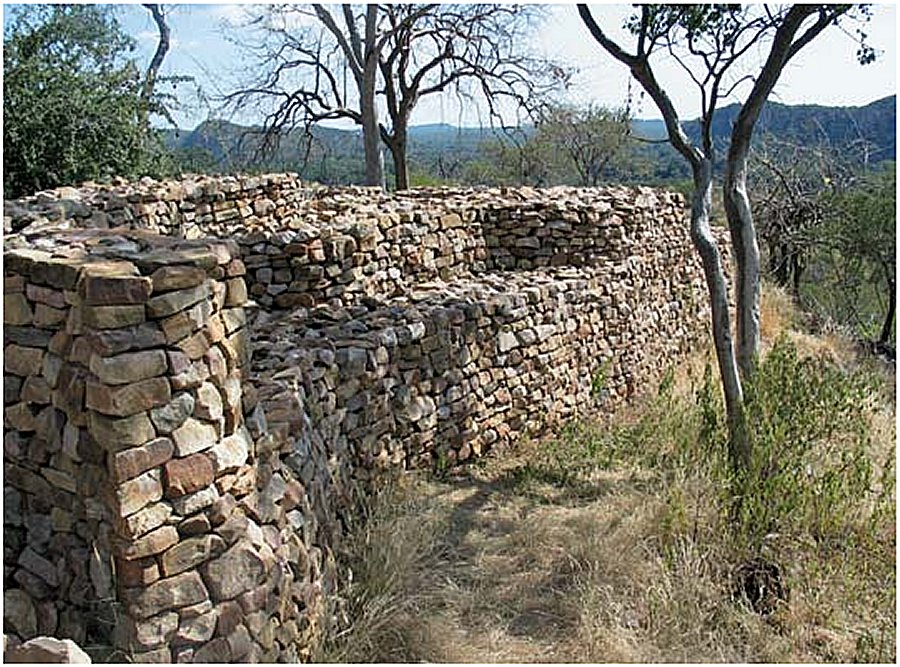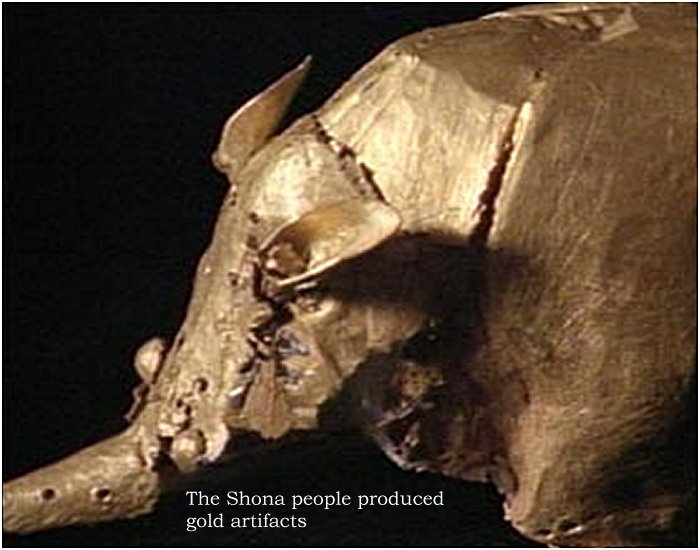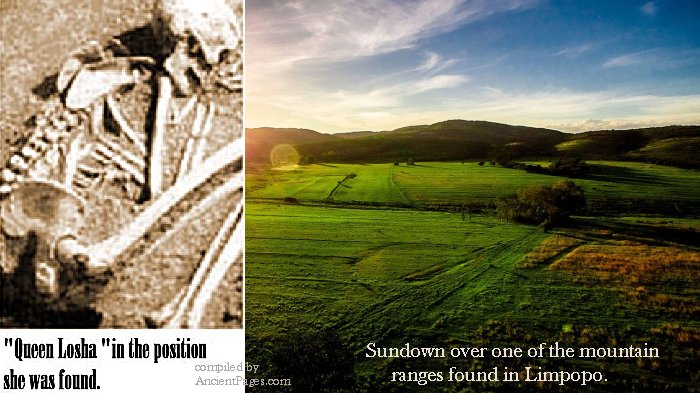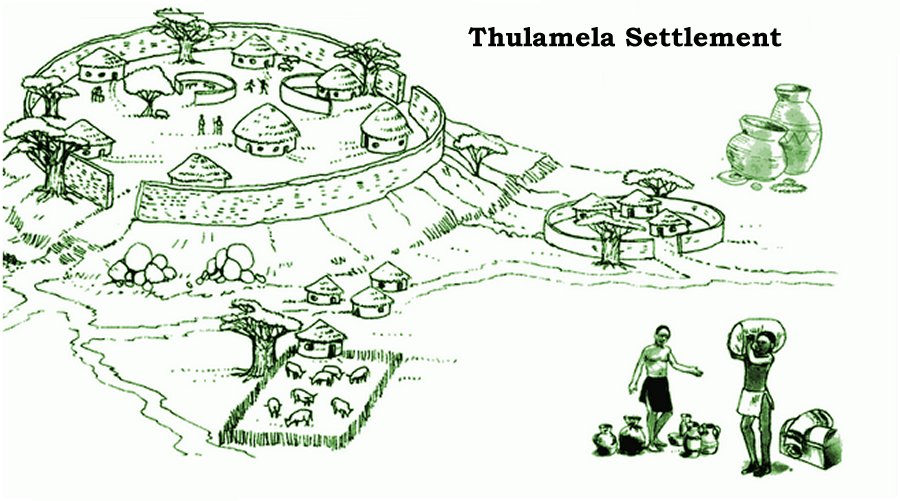Enigmatic Ancient Kingdom Of Thulamela Created By Mysterious Shona People
A. Sutherland - AncientPages.com - Thulamela is an intriguing ancient kingdom created by advanced ancient Shona people whose origin remains unknown.
"Thulamela' means "place of birth" (or "the place of giving birth") in the Venda language, an official language of South Africa.
Based on archaeological excavations conducted in the area of the hilltop at Thulamela, the people of Thulamela probably came from Zimbabwe.
The settlement has many visible traces of the culture of Mapungubwe and Great Zimbabwe.
Similar to the ruins of Great Zimbabwe, the stone city of Thulamela was located in the northeastern part of South Africa near Zimbabwe and Mozambique and had high walls that separating royalty from common people.
Mysterious Shona People Who Formed First Empires
The walls were built by the Shona people, whose exact origin remains unknown.
After 1000 AD, the Shona people began to form the first empires; and about the 14th century, these empires including Great Zimbabwe, Changamire, and Thulamela became widely known because they competed for trade in gold and ivory with Arab and later, Portuguese traders, and came in trade contacts with cultures as far away as East Africa, Persia, Egypt, India, and China.
Thulamela thrived between 1350 and 1650 AD. Its people employed sophisticated mining skills, and succeeded in converting iron ore into carbon steel for use in tools and weapons, and traded along the Swahili Coast.
The ruins of the ancient stone city of Thulamela were uncovered less than a decade ago in the Kruger National Park of South Africa's northern provinces.
Archaeologists also discovered two skeletons that had been buried with gold jewelry, pottery, metal hoes, and spear blades.
Were "King Ingwe" ("leopard") and "Queen Losha" Rulers of Thulamela?
These could be the tombs of a royal pair, a king and queen, who ruled the kingdom of Thulamela
during the sixteen century. Archaeologists dubbed the man - "King Ingwe", meaning "leopard" because on this day, his grave was found and opened and a leopard was seen as the archaeological team was on the way to their vehicle.
The remains were analyzed by scientists at the Department of Anatomy at the University of Pretoria who found that one skeleton was male and the other female. The man was wearing gold jewelry and may have been the king of Thulamela. The woman’s skeleton was also tested and revealed that she was not one of the king’s family members, but that she was possibly also from a noble family.
She was discovered lying on her side with her palms together and her hands under her left temple. In the Venda tradition, women greet men in this way, which is why archaeologists believe that the people of Thulamela were the ancestors of the Venda people today.
"Losha" is the greeting called by the Venda people, and it symbolizes respect -- so the skeleton was named "Queen Losha". When the queen's remains were found, two leopards were seen on the Thulamela road.
Venda traditions among the people of the Limpopo province differ from other ethnic groups. While revering ancestors, Venda's beliefs include a white python and water sprites that need to be nurtured. Occupying a special place in their culture are artists, who are believed to have direct links to the spirit realm.
Venda traditions go back to the great walled settlements found in the Limpopo province in the northernmost part of South Africa. and Zimbabwe. The Venda people were one of the last African groups to migrate south of the Limpopo River.
When they moved to present-day South Africa, they found a bountiful area, which they named Venda (pleasant place), and settled there.
Their local history began in the valleys and mountains of Limpopo, where their forebears established a great civilization centered around Mapungubwe.
Though ruled by kings, the position of women in Venda culture is unusual in Africa in that they are encouraged to occupy senior positions in society. Children and the elderly in the tribe have their own roles to play.
This tradition is associated with Venda's beliefs in ancestors and their involvement in their daily lives.
The Thulamela Kingdom and its culture have many secrets that have never been solved.
Having just joined the earthly plane, children are still close to the ancestors. The elderly are also close to the ancestors because they will soon join the spiritual realm in death. The king is a living ancestor, which guarantees him devotion and respect. He even has his own language, which even more emphasizes his divinity.
According to tradition, there are many sacred sites in Limpopo where the Venda go to communicate with their ancestors. One of them is Lake Fundudzi, high in the Soutspansberg Mountains. This place is one of the most admired and respected as it is believed this is where the White Python − the god of fertility − and other mystical water spirits (zwidutwane) live.
There are a number of rituals and traditions involved in the interaction between the Venda people and the spirits of Lake Fundudzi.
The role of art in the community has a special place among the Venda people. This is what really sets the Venda apart from groups in South Africa. Artists are called by the spirit world through unusual dreams and visions to fulfill their destinies, giving their work supernatural energy, which places them on the same social plane as a traditional healer
The woman's skeleton was also tested and revealed that she was not one of the king's family members, but probably belong to another noble family.
Archaeologists believe that the people of Thulamela were the ancestors of the Venda people today.
Written by – A. Sutherland AncientPages.com Staff Writer
Copyright © AncientPages.com All rights reserved. This material may not be published, broadcast, rewritten or redistributed in whole or part without the express written permission of AncientPages.com
Expand for referencesMore From Ancient Pages
-
 LIDAR Discovers Huge Abandoned Zapotec City With Temples, And Ball Courts In Oaxaca, Mexico
Archaeology | Jan 30, 2025
LIDAR Discovers Huge Abandoned Zapotec City With Temples, And Ball Courts In Oaxaca, Mexico
Archaeology | Jan 30, 2025 -
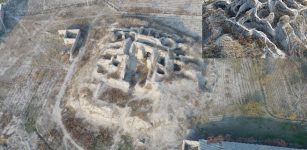 Sogdian Temple Of Jartepa II On Caravan Road Of The Silk Road
News | Sep 3, 2020
Sogdian Temple Of Jartepa II On Caravan Road Of The Silk Road
News | Sep 3, 2020 -
 Engraved Trees Are Living Records Capturing The Rich History And Traditions Of The Sámi People
Archaeology | Nov 21, 2024
Engraved Trees Are Living Records Capturing The Rich History And Traditions Of The Sámi People
Archaeology | Nov 21, 2024 -
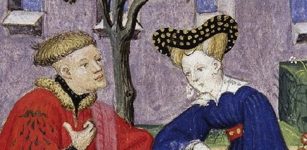 Why Was Lovesickness A Feared Disease During The Middle Ages?
Ancient History Facts | Feb 8, 2018
Why Was Lovesickness A Feared Disease During The Middle Ages?
Ancient History Facts | Feb 8, 2018 -
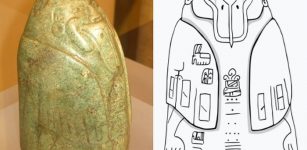 Strange Tuxtla Statuette And Its Undeciphered Inscription – An Epi-Olmec Puzzle
Artifacts | Mar 14, 2018
Strange Tuxtla Statuette And Its Undeciphered Inscription – An Epi-Olmec Puzzle
Artifacts | Mar 14, 2018 -
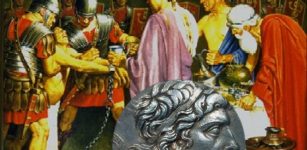 King Mithradates VI Of Pontus Used Poison To Avoid Death By Poison
Ancient History Facts | Mar 5, 2016
King Mithradates VI Of Pontus Used Poison To Avoid Death By Poison
Ancient History Facts | Mar 5, 2016 -
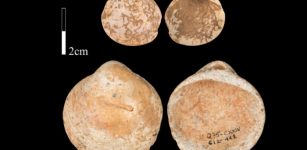 Perforated Shells Were Used By Humans 120,000 Years Ago
Archaeology | Jul 10, 2020
Perforated Shells Were Used By Humans 120,000 Years Ago
Archaeology | Jul 10, 2020 -
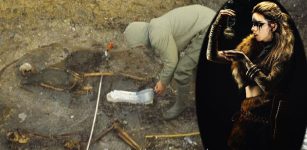 Mysterious Viking Gerdrup Grave – Burial Place Of Sorceress Katla And Her Son Odd Mentioned In The Eyrbyggja Saga?
Featured Stories | Mar 22, 2023
Mysterious Viking Gerdrup Grave – Burial Place Of Sorceress Katla And Her Son Odd Mentioned In The Eyrbyggja Saga?
Featured Stories | Mar 22, 2023 -
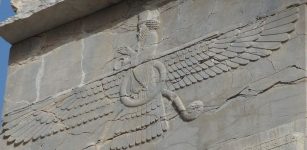 Winged Sun Disk: One Of The Oldest And Most Important Solar And Religious Symbols
Ancient Symbols | Mar 15, 2019
Winged Sun Disk: One Of The Oldest And Most Important Solar And Religious Symbols
Ancient Symbols | Mar 15, 2019 -
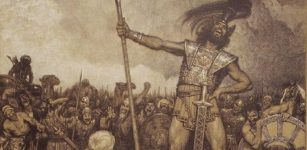 Skull Of Biblical Giant Goliath Is Buried On The Hill Golgotha In Jerusalem – New Claim
Archaeology | Nov 7, 2019
Skull Of Biblical Giant Goliath Is Buried On The Hill Golgotha In Jerusalem – New Claim
Archaeology | Nov 7, 2019 -
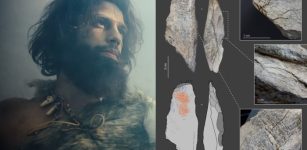 Little Known Neanderthal Technology Examined – Turning Bones Into Tools
Archaeology | Jun 19, 2023
Little Known Neanderthal Technology Examined – Turning Bones Into Tools
Archaeology | Jun 19, 2023 -
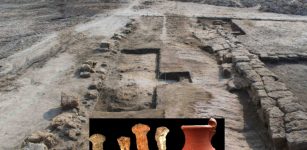 Ptolemaic Workshop For Repairing And Construction Of Boats Unearthed In Sinai
Archaeology | Feb 21, 2019
Ptolemaic Workshop For Repairing And Construction Of Boats Unearthed In Sinai
Archaeology | Feb 21, 2019 -
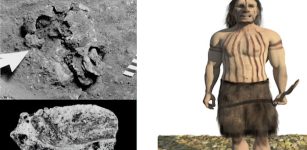 Re-Discovered Ancient Ksâr ‘Akil Fossils Shed New Light On Human Evolution
Archaeology | Mar 28, 2023
Re-Discovered Ancient Ksâr ‘Akil Fossils Shed New Light On Human Evolution
Archaeology | Mar 28, 2023 -
 New Method Reveals Falsified And Original Manuscripts Of Famous Robert Burns
Archaeology | Jul 28, 2018
New Method Reveals Falsified And Original Manuscripts Of Famous Robert Burns
Archaeology | Jul 28, 2018 -
 Ancient Cotton Fibers Dating Back 7,000 Years Discovered In NE Israel
Archaeology | Dec 19, 2022
Ancient Cotton Fibers Dating Back 7,000 Years Discovered In NE Israel
Archaeology | Dec 19, 2022 -
 Controversial 5,500-Year-Old Sumerian Star Map Of Ancient Nineveh Reveals Observation Of Köfels’ Impact Event
Artifacts | Dec 28, 2018
Controversial 5,500-Year-Old Sumerian Star Map Of Ancient Nineveh Reveals Observation Of Köfels’ Impact Event
Artifacts | Dec 28, 2018 -
 Strange Ancient Underwater Yellow Brick Road Discovered Of The Hawaiian Islands
News | May 11, 2022
Strange Ancient Underwater Yellow Brick Road Discovered Of The Hawaiian Islands
News | May 11, 2022 -
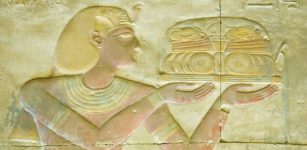 Table Manners And First Code Of Correct Behavior Were Introduced In Egypt 2,500 B.C. By Ptahhotep
Ancient History Facts | Oct 26, 2020
Table Manners And First Code Of Correct Behavior Were Introduced In Egypt 2,500 B.C. By Ptahhotep
Ancient History Facts | Oct 26, 2020 -
 On This Day In History: Hubble Space Telescope Was Launched – On April 24, 1990
News | Apr 24, 2016
On This Day In History: Hubble Space Telescope Was Launched – On April 24, 1990
News | Apr 24, 2016 -
 Mysterious Voynich Manuscript Was Written In Two Languages – Scientists Say
Archaeology | Apr 24, 2017
Mysterious Voynich Manuscript Was Written In Two Languages – Scientists Say
Archaeology | Apr 24, 2017

